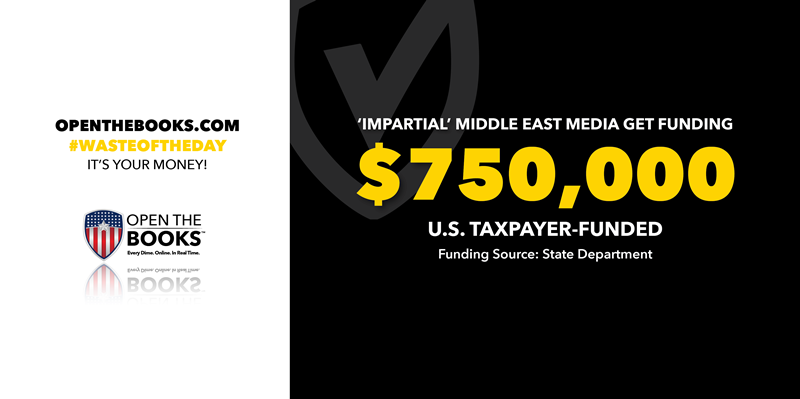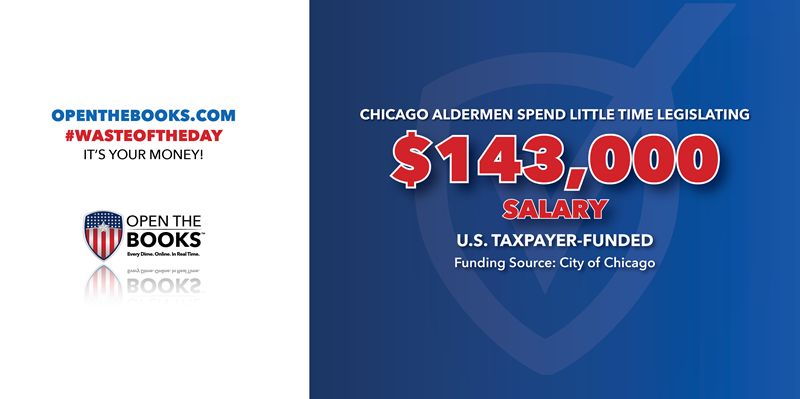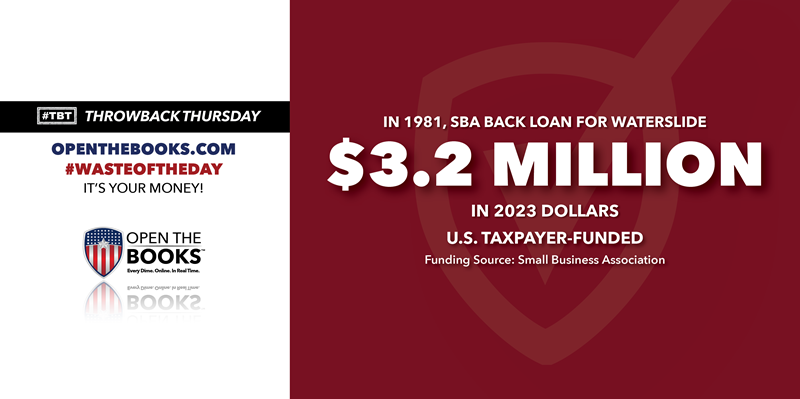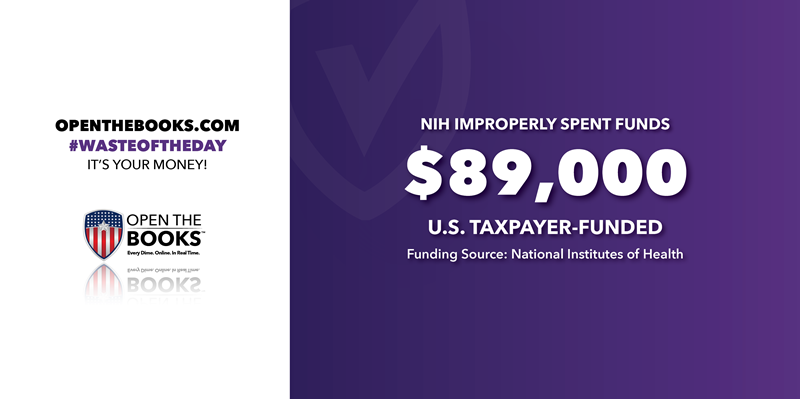
Fired City Manager Received $1M in Pay
March 20, 2023

After states and cities engaged in frenzied buying and stockpiling of Covid-19 supplies in the early days of the pandemic, some are now realizing they have an overabundance of supplies. New York City has already disposed of $14.1 million worth of extra supplies, with plans to dispose of $13.7 million more soon, according to the New York Post.
NYC was one of the earliest and most aggressive Covid preppers, with then-Mayor Bill DeBlasio championing a litany of initiatives early on to slow the spread. Now, excess perishable supplies such as chemical Covid tests and hand sanitizer are being destroyed en masse by the city.
This isn’t the first time New York has had problems dealing with excess Covid supplies. Last summer, it was exposed that New York State had 700,000 gallons of hand sanitizer worth $4.3 million sitting unused in warehouses.
In addition to disposing of $28 million in supplies, NYC is also auctioning off expensive equipment such as ventilators for pennies on the dollar. So far, NYC has auctioned off $225 million worth of equipment for only $500,000. That includes a $12 million loss on ventilators.
NYC is defending its aggressive purchasing, with a Department of Citywide Administrative Services spokesperson telling The Post, “Supplies were purchased to meet potential worst-case scenarios, and fortunately the city had ample supplies, helping us save lives and beat back the surge, instead of falling short.”
While it’s true uncertainty abounded in the early days of the pandemic, the vast majority of states and municipalities were able to feel adequately prepared without wasting millions on equipment and supplies that were never used. Now, taxpayers are paying the price for the city's poor planning.
State Department to Spend $750K on ‘Impartial Media’ in Middle East
March 21, 2023

The State Department’s Bureau of Democracy, Human Rights, and Labor will spend $750,000 to promote impartial and equitable media coverage in the Middle East and North African regions.
According to the grant, the State Department is looking to fund “regional programs with the objectives to counter discrimination and promote greater diversity in media coverage of marginalized racial and ethnic communities and underrepresented and vulnerable groups in the Middle East and North Africa.”
Projects are expected to take 2-3 years, and nonprofits and non-governmental organizations in both the U.S. and foreign countries can apply.
While the grant is vague in its guidelines, it suggests organizations can take steps in “countering mis and dis information as well as negative rhetoric targeting marginalized racial and ethnic communities, as well as refugees, asylum seekers, and migrants.” It also suggests “facilitating collaboration and knowledge exchange on confronting hate speech and promoting diversity, equity, accessibility and inclusion in the media.”
Ironically, the Biden Administration’s attempt to counter disinformation with a task force was scrapped after only three weeks in 2022.
The grant heavily emphasized that “advancing equity and support for underserved and underrepresented communities” is a critical component of any projects. Projects not allowed include humanitarian aid, English language instruction, development of high-tech computer or communications software and/or hardware, and micro-loans or similar small business development initiatives.
The U.S. can’t afford to spend hundreds of thousands of dollars to fund programs with vague goals and intangible benefits in unspecified countries, especially when the types of aid that matter most are explicitly barred in the quest for equitable media coverage.
Chicago Aldermen Make Up to $143K For Not Much Legislating
March 22, 2023

In the Windy City, Chicago Aldermen make handsome salaries, up to $143,000. Unfortunately, a recent investigation from the Better Government Association found that one-third of their meetings are spent on non-binding honorary matters instead of legislating for their constituents.
The investigation tracked speaking time at Chicago City Council Meetings and divided it into two categories: honorary resolutions and regular business. According to the Better Government Association, since November 2019, “one-third of the active meeting time – from the commencement of regular business following public comment to the adjournment gavel at the end – has been spent on tributary, memorial or otherwise honorary matters.”
In 2023, it's been even worse, with approximately 60% of the Council’s meeting time spent, “noting significant birthdays, retirements, tributes and other non-binding resolutions.”
Aldermen begin their careers making a salary of $115,560, but get cost-of-living adjustments to match inflation. They received a pay bump of about 10% this year, thanks to record inflation. Now, the longest-serving and highest-paid aldermen in Chicago make $142,772.
Meanwhile, as the City Council gets lavishly compensated for applauding birthdays and retirements, Chicagoans are experiencing some of the worst crime in decades, with 697 homicides in 2022, the most in the nation for the 11th straight year. The city also saw 1,800 carjackings in 2021.
Chicago’s median household income is $65,781, almost half what aldermen make. If they’re going to out earn their constituents by that much, they should at least attempt to legislate and help their communities.
Throwback Thursday: SBA Guarantees Loan for Water Slide
March 23, 2023

Throwback Thursday!
In 1981, the Small Business Administration guaranteed two loans totaling almost $1 million – about $3.2 million in 2023 dollars – to a waterpark to build a giant water slide and start on other construction projects.
Sen. William Proxmire, a Democrat from Wisconsin, awarded the SBA his Golden Fleece Award for this ridiculous loan guarantee at taxpayers’ expense.
According to Proxmire, the SBA approved two loan guarantees for Waterworld USA in the Sacramento, California area. Two local private banks loaned them $560,000 each, and the SBA agreed to guarantee 89 percent of those loans, the maximum allowed under SBA rules.
The first of these loans went toward the construction of a water slide, and the second went toward paying off other construction and machinery costs.
A loan guarantee means the federal government agrees to pay off the full value of the loan, including principal and interest, in the event the borrowers can’t make their full payments. This reduces risk for banks, but leaves taxpayers on the hook for failed projects.
A water slide may seem like a foolish project to guarantee, but according to an SBA official, that is exactly why the loan guarantee was granted. An official told Proxmire, “The reason was the fact that it’s a water slide … It’s a recreational facility, and it's considered in the interest of the public.”
Unfortunately, delays and cost overruns plagued this project, with costs exceeding projections by over $1 million, causing Waterworld to delay its opening date.
Proxmire correctly notes that the government should not be a lender of last resort, because it exposes taxpayers to risk and crowds out loans for better projects with higher success rates. When the government does make these loan guarantees, Proxmire quips, the result “may be the taxpayers taking a bath.”
NIH Had $89K in Improper Spending Due To Lax Oversight
March 24, 2023

As more government agencies conclude that Covid-19 may have leaked from a Chinese lab, the National Institutes of Health should be an agency to watch, especially the funds it gives to foreign countries.
In fact, its funding hasn’t been effectively monitored, a Department of Health and Human Services Office of Inspector General report found, leading to $89,171 in unallowable costs.
The report concluded that “The National Institutes of Health and EcoHealth Alliance did not effectively monitor awards and subawards, resulting in missed opportunities to oversee research and other deficiencies.” EcoHealth Alliance is a nonprofit that protects wildlife and public health from the emergence of disease, and relies mainly on funding from the NIH.
The report found, “deficiencies in complying with those [monitoring] procedures limited NIH and EcoHealth’s ability to effectively monitor Federal grant awards and subawards to understand the nature of the research conducted, identify potential problem areas, and take corrective action.”
As a result, the NIH improperly terminated a grant, EcoHealth Alliance was unable to obtain scientific documentation from the Wuhan Institute of Virology on another grant, and EcoHealth’s improper use of grant funds resulted in $89,1871 of unallowable costs. Specifically, these unallowable costs include improperly paid bonuses to its employees, tuition reimbursement to one of its employees, and improper travel costs.
The NIH has a $45 billion budget, yet it can’t be bothered with basic oversight of its grants and funding partners.
The #WasteOfTheDay is presented by the forensic auditors at OpenTheBooks.com.